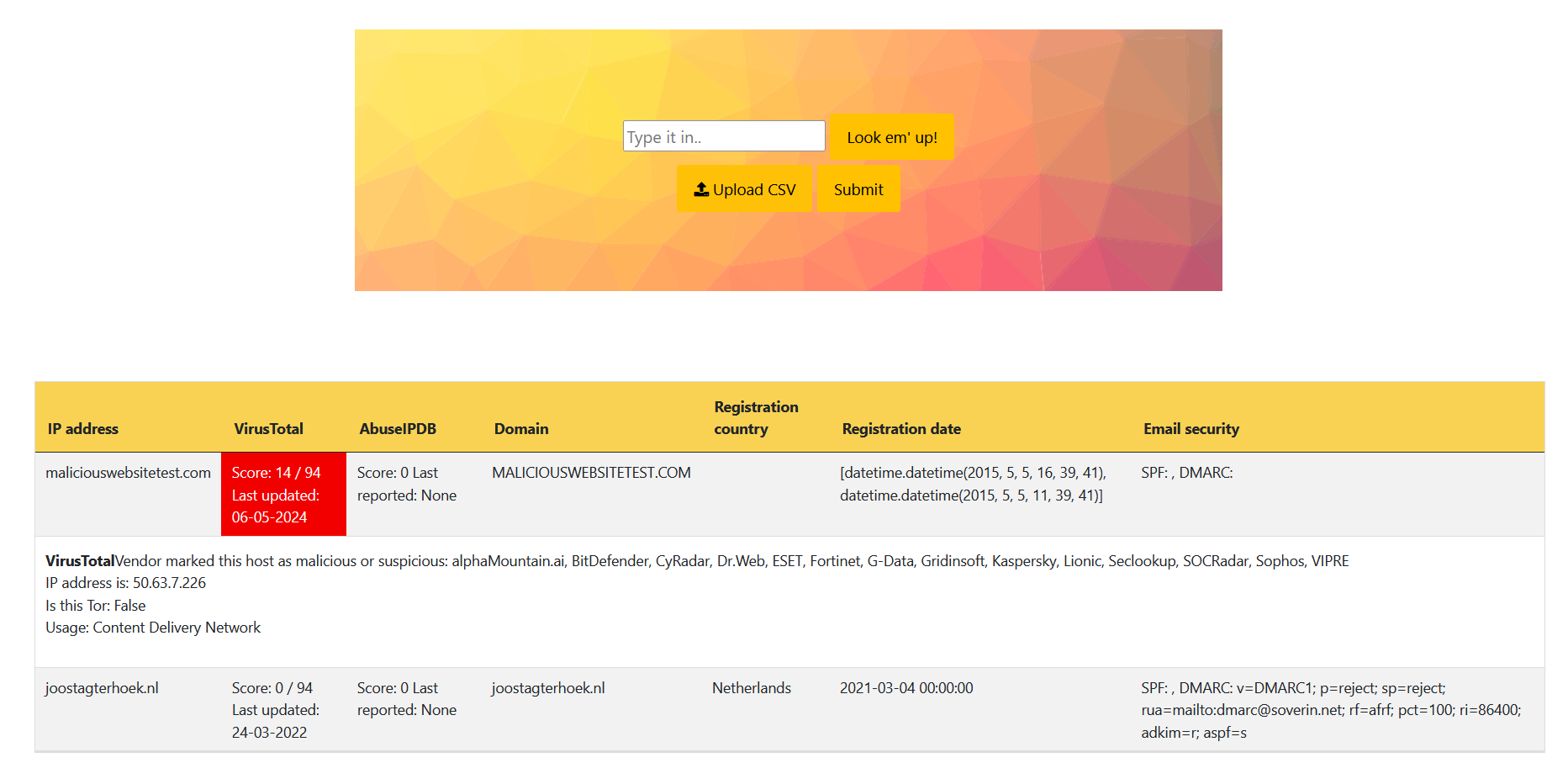flask-soc-site
This is a Python project to learn working with Flask. To make it useful for my day job as a security analyst, I turned it into a one-page website that can look up security-relevant data about hosts (IP addresses, fully qualified domain names, URLs and domains). Current features include: VirusTotal and AbuseIPDB-results, DMARC, DKIM and SPF information and registrar information.
Testing a Mermaid graph to work out the flow of the website
Todos
- Turn manual wheel build process into a CI/CD pipeline
- reorganize the SPF, DMARC and DKIM results (organize the SPF to match ['record'] with ['parsed']) 📧
- try to incorporate OTX Alienvault results (unfortunately the historical telemetry is not possible via the API...) 👽
- start working again on the upload feature to analyze hosts in a text or csv file 📎
- parse and display lookup results for multiple, differently typed and separated hosts (look at parsing in gui-host-lookup) 💯
- Make the foldable detail lines more useful and readable
- Update the (currently broken) lookup of URLs
- Differentiate both the lookup functions (the Host class initialization) and the result HTML/Jinja-pages on host type
- Deploy the app to production (sec.joostagterhoek.nl) which first requires to follow some deployment and app organization tutorials (https://flask.palletsprojects.com/en/stable/tutorial/database/ for example)
- Follow the example of the working 'packaging-flask-soc-site'-folder ánd incorporate config.py 'from config import config')
- Implement caching across the entire website (now only for AbuseIPDB API requests)
- Rewrite lookup.html with grid and flex like in v3
- Add lookup history and note taking page (clickable options at the top)
- Investigate single-page-app (AJAX) f.e. https://iq.opengenus.org/single-page-application-with-flask-ajax/
- Think about and handle security risks (research rate limiting in Nginx)
Description
This is a Python project to learn working with Flask. To make it useful for my day job as a security analyst, I turned it into a one-page website that can look up security-relevant data about hosts (IP addresses, fully qualified domain names, URLs and domains). Current features include: VirusTotal and AbuseIPDB-results, DMARC, DKIM and SPF information and registrar information.
Languages
Python
50.5%
HTML
30.5%
CSS
17.3%
JavaScript
1.7%
